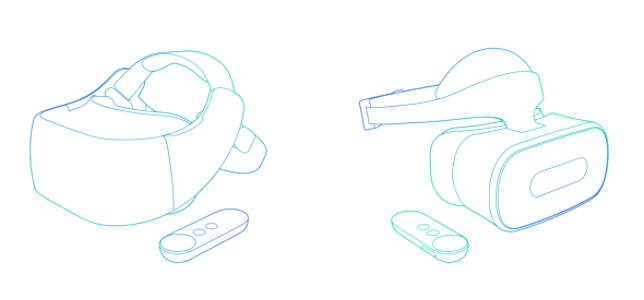Google I/O 2017: Standalone Google VR Headsets from HTC, Lenovo Coming Soon
One of the major drawbacks to using virtual reality (VR) headsets is being tethered to a smartphone or PC while immersed in an experience. However, yesterday at the annual Google I/O 2017 developer conference, Google unveiled an upcoming “revolutionary” standalone VR headset that aims to change that. The headset will be manufactured by HTC and Lenovo.

Prototypes of the upcoming Daydream-compatible headsets from HTC (left) and Lenovo (right). Images: Google.
The Daydream-compatible standalone headsets will utilize Qualcomm’s Snapdragon 835 VR platform and what Google is calling “WorldSense” technology, powered by its own Tango augmented reality system. On-board sensors in the headsets will enable inside-out tracking, which will remove the need to connect to any external hardware. Prices and release dates are to be determined.
The Daydream VR platform was introduced at last year’s I/O conference and already there are more than 150 VR apps in the Google Play Store. Google has been working on its standalone VR headset for more than a year.
To learn more about how WorldSense works, watch the video below.
About the Author
Sri Ravipati is Web producer for THE Journal and Campus Technology. She can be reached at [email protected].